Memes: The unofficial voice of Bangladesh’s digital generation

What started as a niche form of entertainment, in recent years, has grown into a medium for storytelling, political satire, and everyday connection. Memes now serve as a mirror of society, and as Bangladesh continues to embrace digitalisation, they are now contributing to online conversations and sparking social change.
From their origins as simple jokes to their evolution as a medium for critique, activism, and connection, they have become an integral part of our digital culture. They entertain us, reflect our realities, and provide a platform for collective thought and action.
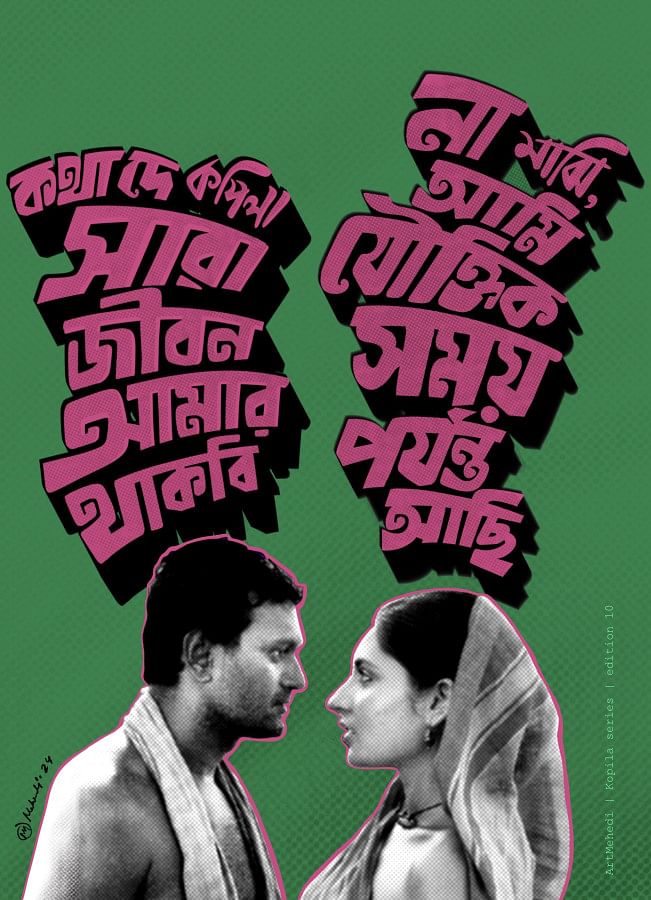
From jokes to cultural commentary
In the early 2010s, memes in Bangladesh first gained traction and were prominently influenced by global trends. Rubel Rony, the founder of Memelate — a template library — details how the journey began.
"Back in 2006, Facebook was a different platform — people used it mostly to communicate, share stories, and upload pictures. After 2010, images like the troll and frog faces began creating a buzz, and people started sharing these widely," says Rony.
According to the popular creator, local content was initially dominated by global templates borrowed from platforms like Reddit and 9GAG. While these made people laugh, they inherently lacked a unique identity. Recognising this gap, he founded Memelate to archive what was created by Bangladeshi 'memers' and empower local artists.
"Platforms like 'Moja Losss' and 'Keu Amare Mairala' were initially very popular among young people. I founded Memelate primarily to promote Bangla templates. It's a repository where users can download prototypes and customise them with their creativity," he adds.
That said, early works were undoubtedly funny and relatable, but what they essentially lacked was that genuine touch of Bangladeshi context and impactful stories that would have the power to promote societal change.
However, we did not have to wait very long! As time progressed, so did creativity and thus came the advent of political satires, through which online activists address more serious issues.
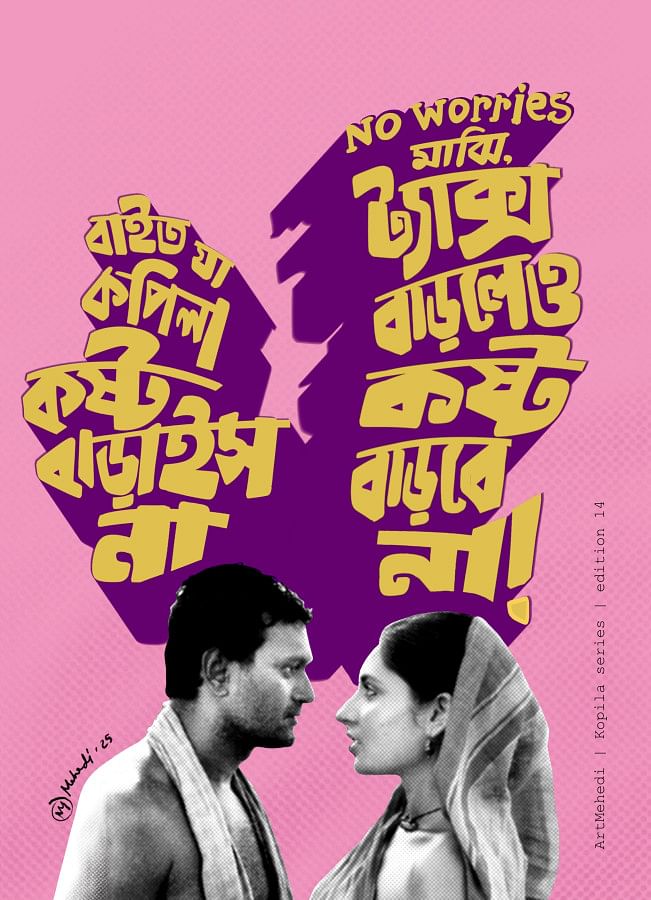
Laughter with a purpose
By blending wit with metaphorical storytelling to navigate societal and political constraints, activists started to tackle complex topics, particularly politics. Rony compares this creativity to Iranian filmmakers who use metaphors to work around restrictions.
"Despite laws like the Digital Security Act (DSA), our creators came up with witty and humorous content that was metaphorical in nature," he elaborates.
Still, many popular pages could not escape the restrictions imposed by the previous government, and an example is the closing down of Moja Losss in 2015 on account of circulating political commentaries through memes.
Many enthusiasts were saddened by this closure — one of them being Shayak Chowdhury, who was an HSC examination candidate back then.
"Moja Losss dared to humour the government in a satirical manner, which I think was brilliant. Political humour is necessary because you can criticise authority through metaphors. The closure of this page came out as a huge disappointment," he remarks.
During the July Movement, the power of this form as a tool for mobilisation was particularly evident when thousands of people took to the streets, demanding systemic change. Satirical works — whether on the former prime minister or her other ministers — not only entertained people but also spread information and motivated them to defy the restrictions.
"I saw a noteworthy rise in activity, especially after July 2024. Moreover, the number of downloads on Memelate's website (which I manage) skyrocketed. It shows how they became a tool for spreading awareness and rallying support."
Memes have continued to play a role in keeping the conversation alive even after the protests subsided. So, it would be safe to assume that they have become the unofficial pulse-check of our society that reflects not only humour but also our pent-up frustrations. Now, creators use jokes to roast authority figures, call out inefficiencies and remind people of the need for vigilance.
Connecting through shared experiences
One prominent example would be artist Mehedi Hasan's 'Kopila-Majhi' series, which captures the duality of human thought.
"I chose these characters because they represent the questions and answers we grapple with daily. Kopila asks, and Majhi responds — it's a dialogue that encourages people to reflect on their beliefs and societal norms," Hasan explains.
Indeed, the 'Kopila-Majhi' series is like watching a philosophical debate unfold at a tea stall! As Hasan mentions, memes help to create a sense of shared understanding by capturing the idiosyncrasies of daily life — whether it's the frustration of load-shedding, the excitement of Eid shopping, or the infamous traffic of Dhaka. Ultimately, they distil these experiences into bite-sized pieces of humour that resonate with everyone.
For people like Mehedi Hasan, this relatability, with a dash of humour, is central to the effort they put into their creations. Hasan elaborates, "When people engage with my content – sharing, commenting, or adding their thoughts. It helps me understand their pulse. People's feedback inspires my work."
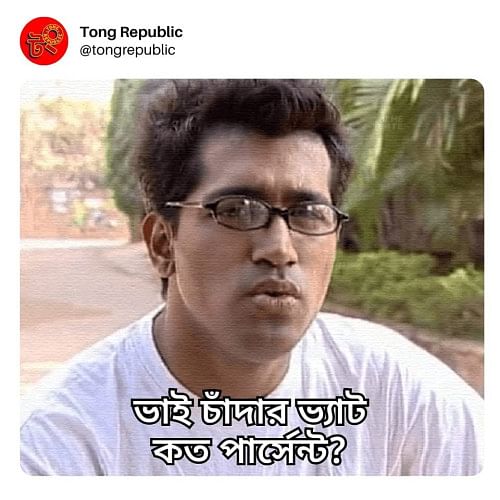
The challenges of creation
As fun and relatable as they are, creating meaningful and original content is not always a walk in the park. Very frequently, oversaturation in the market leads to recycled ideas and shallow humour, which greatly dilutes the quality of meme culture. Additionally, one still has to navigate a fine line when addressing sensitive topics, especially politics.
Hasan acknowledges these challenges, saying, "The hardest part is staying neutral while addressing relevant topics. My goal is to create content that makes people feel seen and heard without pushing agendas or being divisive."
On being ethical, Rony emphasises, "Memers need to adhere to ethical boundaries. If you are not conscious and create only for the sake of trends, you can seriously harm someone's reputation. Once something is on the internet, there's no erasing it. That's why we emphasise ethics in workshops and interactions with creators."
As we all know, humour is subjective and what might make you laugh might offend another. Therefore, creators must be mindful of how their content impacts individuals and communities.
A brighter path ahead
The future looks bright despite all the challenges that persist. With platforms offering resources for meme creators and an ever-growing audience hungry for relatable content, the culture is poised for continued growth.
"They have become part of our lives. They entertain, inform, and connect us. I believe the future of memes and memers is promising. Humour is an inherited trait for us, as Bengalis, and as long as we have stories to tell, our work will thrive," reflects Rony.
For Hasan, the importance lies in their ability to inspire change. "History is often documented in traditional ways, but memes allow us to live history in real-time. They have shown us that art and humour can be powerful tools for expression."
Meme: Mehedi Hasan, Rubel Rony

 For all latest news, follow The Daily Star's Google News channel.
For all latest news, follow The Daily Star's Google News channel. 


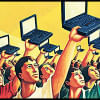




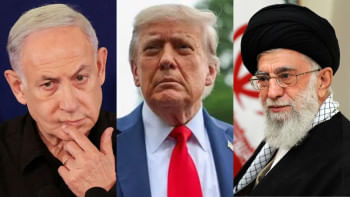
Comments